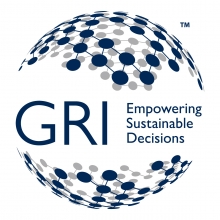The Amsterdam Declaration on Transparency and Reporting
Published 03-10-09
Submitted by Global Reporting Initiative
AMSTERDAM, 10 March 2009 - Global leaders from business, labor and civil society today declared their belief that the lack of transparency in the existing system for corporate reporting has failed its stakeholders. In issuing The Amsterdam Declaration on Transparency and Reporting, Board Members of the Global Reporting Initiative called on governments to introduce policies requiring companies to address publicly environmental, social and governance (ESG) factors.
The declaration states that the root causes of the current economic crisis would have been moderated by a global transparency and accountability system based on the exercise of due diligence and the public reporting of ESG performance. It calls on governments to take leadership in rebuilding a revitalized and resilient economic system through:
- Introducing policy requiring companies to report on ESG factors or publicly explain why they have not done so.
- Requiring ESG reporting by their public bodies "“ in particular: state owned companies, government pension funds and public investment agencies.
- Integrating sustainability reporting within the emerging global financial regulatory framework being developed by leaders of the G20.
The signatories to the declaration emphasize that the focus on the current financial crisis threatens to mask the sustainability crisis which itself poses an even greater risk to our economies and societies.
"Only through a new reporting model, which takes account of forward looking data, as well as previous corporate financial data, will we be able to work out how companies are positioned to meet these future challenges," added Ernst Ligteringen, Chief Executive of The Global Reporting Initiative.
Notes to Editors
1. Full text of The Amsterdam Declaration on Transparency and Reporting
We, The Board of The Global Reporting Initiative (GRI) believe that the lack of transparency in the existing system for corporate reporting has failed its stakeholders. While we recognize that certain governments have shown leadership on corporate sustainability disclosure, we call on all governments to extend and strengthen the global regime of sustainability reporting. In particular, assumptions about the adequacy of voluntary reporting must be re-examined.
We, The Board of GRI, conclude that:
- The root causes of the current economic crisis would have been moderated by a global transparency and accountability system based on the exercise of due diligence and the public reporting of environmental, social and governance (ESG) performance.
- The profound loss of trust in key institutions is best addressed by the adoption of a global reporting framework that enhances transparency and is informed by the legitimate interest of all key sectors of society.
- A revitalized and resilient economic system will only be sustained if it accounts for the full costs and value of ESG activity.
- Introducing policy requiring companies to report on ESG factors or publicly explain why they have not done so.
- Requiring ESG reporting by their public bodies "“ in particular: state owned companies, government pension funds and public investment agencies.
- Integrating sustainability reporting within the emerging global financial regulatory framework being developed by leaders of the G20.
2. Signatories
The Board of Directors of the Global Reporting Initiative comprises: Prof. Mervyn King (Chair), Ms. Jacqueline Aloisi de Larderel, Mr. Ignasi Carreras, Mr. Kishor A. Chaukar, Mr. John Elkington, Ms. Denise Esdon, Mr. John Evans, Mr. Sean Harrigan, Mr. Ernst R. Ligteringen, Dr. Simon Longstaff, Mr. Herman Mulder, Mr. Kumi Naidoo, Mr. Peter Wong, Mr. Ricardo Young Silva.
3. About The Global Reporting Initiative
The Global Reporting Initiative has pioneered the development of the world’s most widely used sustainability reporting framework and is committed to its continuous improvement and application worldwide. This framework sets out the principles and indicators that organizations can use to measure and report their economic, environmental, and social performance.
www.globalreporting.org

Global Reporting Initiative
Global Reporting Initiative
The Global Reporting Initiative's (GRI) vision is that reporting on economic, environmental, and social performance by all organizations becomes as routine and comparable as financial reporting. GRI accomplishes this vision by developing, continually improving, and building capacity around the use of its Sustainability Reporting Framework.
An international network of thousands from business, civil society, labor, and professional institutions create the content of the Reporting Framework in a consensus-seeking process.
More from Global Reporting Initiative

